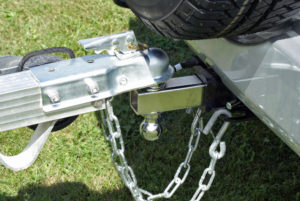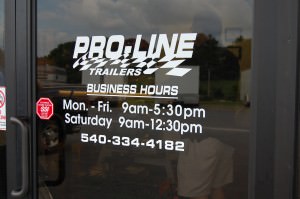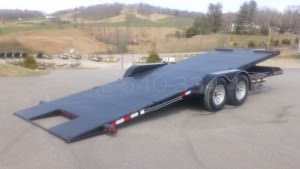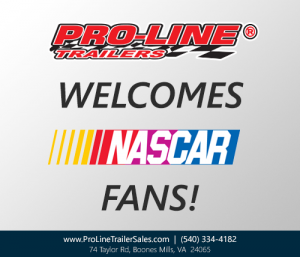Safe Driving: How to Tow a Trailer in Any Weather
Do you know your truck or SUV’s tongue weight? No, it’s not related to the human body but it is one of many important towing terms that you need to learn if you wish to tow a trailer safely in any weather.
Safe driving with a trailer isn’t just about paying attention to the road and avoiding distracted driving, but about a lot more than that. We share all our tips on tongue weight and more in the article below. So keep reading!’
Watch Your Speed
The slower you drive, the more control you have over your vehicle. There’s no need to rush to your destination, especially since that could result in increased trailer sway and make things more dangerous not only for you but for everyone else on the road around you.
Always give yourself extra time to get anywhere so you don’t feel the urge to speed. In fact, it’s always better to drive slower than the speed limit, especially when towing a trailer in snow or rain.
That is, less than ideal driving conditions.
It also takes much longer to stop when towing a travel trailer, so you will want to give yourself enough space and time to do so. Keep enough distance between you and the other drivers, and also, avoid braking too hard as that can increase trailer sway and increase the chances of getting into an accident.
Do Regular Maintenance Checks
This is an important tip for all drivers everywhere, but particularly so for vehicles that are towing trailers. Ensure that the sway bar is tight, and check for proper inflation on your tires every single time.
Not only will you save on fuel costs if your vehicle and trailer are well maintained and the tires are inflated, but it can also avoid some drastic accidents on the road because some crucial part of your vehicle or trailer wasn’t up to par.
It takes but a minute or two to check through your vehicle and trailer. But it can save your life and the life of any others on the road with you.
Check Your Tongue Weight
Haven’t heard of this important towing term before? Well, the tongue weight is the downward force that the tongue of the trailer applies on the hitch of the tow vehicle.
Experts agree that ideally, tongue weight should be between 9 to 15 of the gross trailer weight. That’s an acceptable tongue weight for any trailer.
This is how to look at it. If your tongue weight is too light (yes, this can be a problem), then the tongue of the trailer isn’t applying enough downward force, and this could result in trailer sway which is quite dangerous.
On the other hand, if the tongue weight is too heavy, it can make steering the tow vehicle quite difficult.
Tongue weight is quite an important thing to watch out for when towing a trailer, but it’s easy to adjust as well. You just need a bit of knowledge and a few practice runs to learn what the best tongue weight is for your tow vehicle and trailer combination.
Install Trailer Brakes
When you are hit by big winds or you are driving in snowy, rainy, or windy weather, using a trailer brake is going to be a godsend. This helps you control your trailer much better than if you rely merely on momentum and steering.
With a trailer brake, you can distribute the braking force between the trailer and the tow vehicle. This can help prevent fishtailing or sliding when stopping, especially on a slippery road surface.
You want to make your trailer behavior as predictable as possible. And trailer brakes can help you do that by maintaining control over your load, especially when towing conditions get tricky.
If you are a beginner, you will want to get a trailer brake controller to ensure the safety of your passengers, your load, and other drivers on the road.
Prevent Trailer Sway
There are many things you can do to prevent trailer sway, some of which we’ve mentioned already. There are some other ways as well, like:
- Front-load your trailer with 60% of the weight in the front half
- Don’t overload your trailer
- Don’t speed, always stay at 55 miles per hour or below
- Load cargo on the inside of the trailer only
- Don’t exceed the trailer’s gross weight limits
- Don’t make any sudden steering maneuvers
- Use the recommended gear from the manufacturer only
As you become more comfortable with driving your vehicle with a trailer, you will instinctually know how to drive safely and without trailer sway. But for now, follow the tips above, and above all, stay alert.
Do Not Use Cruise Control
Yes, cruise control is a very convenient feature and you should feel free to use it when you are not towing a trailer. But when towing a trailer on your vehicle, you need to stay alert and focused.
When using cruise control, it’s way too easy to go into daydream mode and lose focus. It’s also likely that your reaction times will slow down if you are not consciously paying attention to the road.
Cruise control is also not designed for or smart enough to know how to drive your car in snowy conditions with a trailer on. That’s why if your cruise control accelerates at the wrong time, it could potentially destabilize your entire load and cause a massive accident.
Never Drive with One Hand
This is in relation to the point above, but anything that causes you to be less alert or focused on the road is a big no-no. When you are driving a trailer rig, you will want to have both hands tightly grasped on your steering wheel, as that will enable you to have better control over the vehicle and the trailer rig.
This is even more important when the weather conditions are windy as it will be easier for your vehicle to go off-course when you only have one hand on the wheel or a loose grip. It seems like such a simple thing, but it’s the little things that cause those big accidents. So don’t dismiss this tip as meaningless.
Avoid Driving Next to Big Rigs and Other Large Vehicles
When you are driving on a highway or a superhighway with lots of other larger vehicles around, then you will want to choose your lane and position carefully. Any other big vehicles, like big rigs, RVs, and buses, will have massive tailwinds and that could unbalance or provide undue pressure upon your vehicle.
Also, in windy or snowy conditions, these large vehicles are more prone to flip over, and you will want to stay away from them for that reason as well. If you are going to drive slower than the speed limit as recommended, you will want to stay away from the leftmost lanes and stay somewhere in the middle lane or the rightmost one.
Park in a Safe Spot Away from Trees
When towing a travel trailer, you have to focus not only on how you drive but also on where you park. Ensure that you park away from all the other smaller vehicles so that there is enough room for you to maneuver and pull out of the parking lot. But also park away from trees or other such objects, so they don’t blow over down on your car, especially in windy conditions.
Usually, service centers or other parking areas have separate parking zones for vehicles with trailers or larger vehicles. Use these parking zones, even if you are just dropping into the center for a quick coffee or bathroom break. This way you can ensure everyone’s safety, not only your own.
Don’t Tow More than What Your Vehicle Is Rated For
Every vehicle and trailer comes with specific delineations of how much to tow and how much weight to carry, etc. Follow these rules to a T.
The manufacturers of these vehicles have done numerous tests to figure out what numbers work and which ones don’t. So don’t mess with the specifications they have handed down to you. Also, ensure you use the towing equipment that is specifically recommended by the manufacturers and not just whatever catches your fancy.
Safe Driving Tips When Towing a Trailer
Whether it’s your first time towing a travel trailer or you are an old hand at it, make sure to follow the safe driving tips outlined above. It’s easy to get complacent about these things when you’ve been driving for a while, but towing a trailer isn’t child’s play and everything can go wrong in just an instant.
If you wish to order a new, used, or custom trailer, or trailer parts and accessories, contact us today to get started on that. You can also schedule a trailer inspection, repair, or service with us.





